- Exclusive: 120+ MAMMA MIA! Alumni Reunite at the Winter Garden Theatre
- Video: Jarrod Spector Is the King (George) of Broadway
- Exclusive: Maya Drake, Kennedy Caughell, & Roz White Will Lead HELL'S KITCHEN Tour
Latest News
Trending Stories
Recommended for You
Photos: Cynthia Erivo and More in JESUS CHRIST SUPERSTAR
The cast also featured Phillipa Soo as Mary Magdalene and John Stamos as King Herod; Milo Manheim as Peter; and Raúl Esparza as Pontius Pilate.
Video: HAMILTON Celebrates 10 Years on Broadway With Mega-Mix Curtain Call
Hamilton, which debuted on Disney+ in 2020, will be making its way to movie theaters this year in celebration of the 10th anniversary of the hit musical.
Broadway Grosses: Week Ending 8/3/25 - Long Running Shows WICKED and HAMILTON Top the List
View the latest Broadway Grosses
Photos: First Look at Jinkx Monsoon, Michael Urie & More in OH, MARY!
Monsoon will play 'Mary Todd Lincoln' through September 28 at the Lyceum Theatre.
Ticket Central
Hot Photos this week
 Cynthia Erivo and More in JESUS CHRIST SUPERSTAR
The cast also featured Phillipa Soo as Mary Magdalene and John Stamos as King Herod; Milo Manheim as Peter; and Raúl Esparza as Pontius Pilate.
Cynthia Erivo and More in JESUS CHRIST SUPERSTAR
The cast also featured Phillipa Soo as Mary Magdalene and John Stamos as King Herod; Milo Manheim as Peter; and Raúl Esparza as Pontius Pilate.
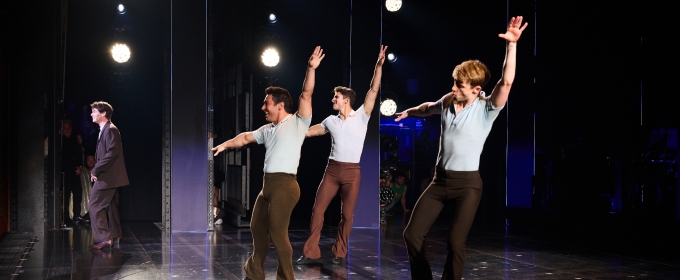 Inside A CHORUS LINE's 50th Anniversary Celebration
The event featured original stars Baayork Lee, Kelly Bishop, Wayne Cilento,
Inside A CHORUS LINE's 50th Anniversary Celebration
The event featured original stars Baayork Lee, Kelly Bishop, Wayne Cilento,
 Lea Salonga, Arielle Jacobs, and More in Theatre Group Asia's INTO THE WOODS
The show pays tribute to the late Bobby Garcia, Theatre Group Asia's co-founder.
Lea Salonga, Arielle Jacobs, and More in Theatre Group Asia's INTO THE WOODS
The show pays tribute to the late Bobby Garcia, Theatre Group Asia's co-founder.
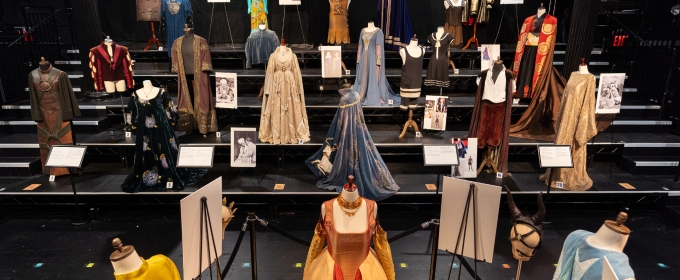 See Costumes Worn by Meryl Streep, Al Pacino & More in the Public's Costume Exhibit
The exhibit will be open Tuesday-Sunday: 11am-2pm and 5-8pm.
See Costumes Worn by Meryl Streep, Al Pacino & More in the Public's Costume Exhibit
The exhibit will be open Tuesday-Sunday: 11am-2pm and 5-8pm.
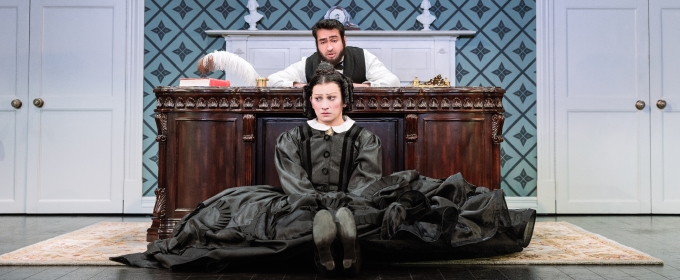 First Look at Jinkx Monsoon, Michael Urie & More in OH, MARY!
Monsoon will play 'Mary Todd Lincoln' through September 28 at the Lyceum Theatre.
First Look at Jinkx Monsoon, Michael Urie & More in OH, MARY!
Monsoon will play 'Mary Todd Lincoln' through September 28 at the Lyceum Theatre.
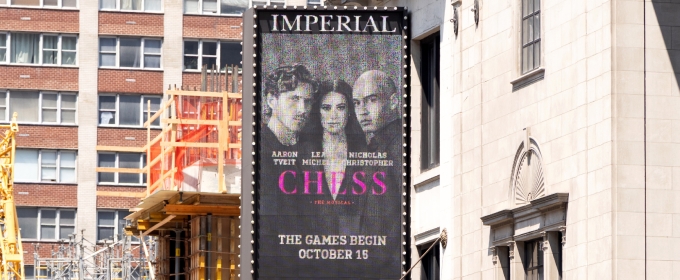 Up on the Marquee: CHESS Returns to Broadway
Chess will begin performances Wednesday, October 15, 2025, and officially open Sunday, November 16, 2025.
Up on the Marquee: CHESS Returns to Broadway
Chess will begin performances Wednesday, October 15, 2025, and officially open Sunday, November 16, 2025.
 Inside A CHORUS LINE's 50th Anniversary Celebration
The event featured original stars Baayork Lee, Kelly Bishop, Wayne Cilento,
Inside A CHORUS LINE's 50th Anniversary Celebration
The event featured original stars Baayork Lee, Kelly Bishop, Wayne Cilento,
 Lea Salonga, Arielle Jacobs, and More in Theatre Group Asia's INTO THE WOODS
The show pays tribute to the late Bobby Garcia, Theatre Group Asia's co-founder.
Lea Salonga, Arielle Jacobs, and More in Theatre Group Asia's INTO THE WOODS
The show pays tribute to the late Bobby Garcia, Theatre Group Asia's co-founder.
 See Costumes Worn by Meryl Streep, Al Pacino & More in the Public's Costume Exhibit
The exhibit will be open Tuesday-Sunday: 11am-2pm and 5-8pm.
See Costumes Worn by Meryl Streep, Al Pacino & More in the Public's Costume Exhibit
The exhibit will be open Tuesday-Sunday: 11am-2pm and 5-8pm.
 First Look at Jinkx Monsoon, Michael Urie & More in OH, MARY!
Monsoon will play 'Mary Todd Lincoln' through September 28 at the Lyceum Theatre.
First Look at Jinkx Monsoon, Michael Urie & More in OH, MARY!
Monsoon will play 'Mary Todd Lincoln' through September 28 at the Lyceum Theatre.
 Up on the Marquee: CHESS Returns to Broadway
Chess will begin performances Wednesday, October 15, 2025, and officially open Sunday, November 16, 2025.
Up on the Marquee: CHESS Returns to Broadway
Chess will begin performances Wednesday, October 15, 2025, and officially open Sunday, November 16, 2025.
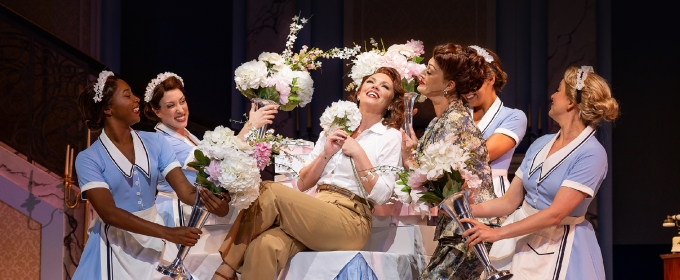 Robyn Hurder, Andrew Durand, and More Star in HIGH SOCIETY at Ogunquit Playhouse
The production runs July 24 through August 23 in Ogunquit, Maine.
Robyn Hurder, Andrew Durand, and More Star in HIGH SOCIETY at Ogunquit Playhouse
The production runs July 24 through August 23 in Ogunquit, Maine.
 Lea Salonga, Arielle Jacobs, and More in Theatre Group Asia's INTO THE WOODS
The show pays tribute to the late Bobby Garcia, Theatre Group Asia's co-founder.
Lea Salonga, Arielle Jacobs, and More in Theatre Group Asia's INTO THE WOODS
The show pays tribute to the late Bobby Garcia, Theatre Group Asia's co-founder.
 See Costumes Worn by Meryl Streep, Al Pacino & More in the Public's Costume Exhibit
The exhibit will be open Tuesday-Sunday: 11am-2pm and 5-8pm.
See Costumes Worn by Meryl Streep, Al Pacino & More in the Public's Costume Exhibit
The exhibit will be open Tuesday-Sunday: 11am-2pm and 5-8pm.
 First Look at Jinkx Monsoon, Michael Urie & More in OH, MARY!
Monsoon will play 'Mary Todd Lincoln' through September 28 at the Lyceum Theatre.
First Look at Jinkx Monsoon, Michael Urie & More in OH, MARY!
Monsoon will play 'Mary Todd Lincoln' through September 28 at the Lyceum Theatre.
 Up on the Marquee: CHESS Returns to Broadway
Chess will begin performances Wednesday, October 15, 2025, and officially open Sunday, November 16, 2025.
Up on the Marquee: CHESS Returns to Broadway
Chess will begin performances Wednesday, October 15, 2025, and officially open Sunday, November 16, 2025.
 Robyn Hurder, Andrew Durand, and More Star in HIGH SOCIETY at Ogunquit Playhouse
The production runs July 24 through August 23 in Ogunquit, Maine.
Robyn Hurder, Andrew Durand, and More Star in HIGH SOCIETY at Ogunquit Playhouse
The production runs July 24 through August 23 in Ogunquit, Maine.
 Photo: MY NEIGHBOUR TOTORO Releases New Artwork
The new artwork captures the iconic bus stop scene where Mei and Satuski encounter the forest spirit Totoro for the first time together.
Photo: MY NEIGHBOUR TOTORO Releases New Artwork
The new artwork captures the iconic bus stop scene where Mei and Satuski encounter the forest spirit Totoro for the first time together.
 See Costumes Worn by Meryl Streep, Al Pacino & More in the Public's Costume Exhibit
The exhibit will be open Tuesday-Sunday: 11am-2pm and 5-8pm.
See Costumes Worn by Meryl Streep, Al Pacino & More in the Public's Costume Exhibit
The exhibit will be open Tuesday-Sunday: 11am-2pm and 5-8pm.
 First Look at Jinkx Monsoon, Michael Urie & More in OH, MARY!
Monsoon will play 'Mary Todd Lincoln' through September 28 at the Lyceum Theatre.
First Look at Jinkx Monsoon, Michael Urie & More in OH, MARY!
Monsoon will play 'Mary Todd Lincoln' through September 28 at the Lyceum Theatre.
 Up on the Marquee: CHESS Returns to Broadway
Chess will begin performances Wednesday, October 15, 2025, and officially open Sunday, November 16, 2025.
Up on the Marquee: CHESS Returns to Broadway
Chess will begin performances Wednesday, October 15, 2025, and officially open Sunday, November 16, 2025.
 Robyn Hurder, Andrew Durand, and More Star in HIGH SOCIETY at Ogunquit Playhouse
The production runs July 24 through August 23 in Ogunquit, Maine.
Robyn Hurder, Andrew Durand, and More Star in HIGH SOCIETY at Ogunquit Playhouse
The production runs July 24 through August 23 in Ogunquit, Maine.
 Photo: MY NEIGHBOUR TOTORO Releases New Artwork
The new artwork captures the iconic bus stop scene where Mei and Satuski encounter the forest spirit Totoro for the first time together.
Photo: MY NEIGHBOUR TOTORO Releases New Artwork
The new artwork captures the iconic bus stop scene where Mei and Satuski encounter the forest spirit Totoro for the first time together.
 Josh Gad Rocks the Hollywood Bowl As JESUS CHRIST SUPERSTAR's 'King Herod'
Gad returned to the production after beating COVID to perform the iconic role.
Josh Gad Rocks the Hollywood Bowl As JESUS CHRIST SUPERSTAR's 'King Herod'
Gad returned to the production after beating COVID to perform the iconic role.
 First Look at Jinkx Monsoon, Michael Urie & More in OH, MARY!
Monsoon will play 'Mary Todd Lincoln' through September 28 at the Lyceum Theatre.
First Look at Jinkx Monsoon, Michael Urie & More in OH, MARY!
Monsoon will play 'Mary Todd Lincoln' through September 28 at the Lyceum Theatre.
 Up on the Marquee: CHESS Returns to Broadway
Chess will begin performances Wednesday, October 15, 2025, and officially open Sunday, November 16, 2025.
Up on the Marquee: CHESS Returns to Broadway
Chess will begin performances Wednesday, October 15, 2025, and officially open Sunday, November 16, 2025.
 Robyn Hurder, Andrew Durand, and More Star in HIGH SOCIETY at Ogunquit Playhouse
The production runs July 24 through August 23 in Ogunquit, Maine.
Robyn Hurder, Andrew Durand, and More Star in HIGH SOCIETY at Ogunquit Playhouse
The production runs July 24 through August 23 in Ogunquit, Maine.
 Photo: MY NEIGHBOUR TOTORO Releases New Artwork
The new artwork captures the iconic bus stop scene where Mei and Satuski encounter the forest spirit Totoro for the first time together.
Photo: MY NEIGHBOUR TOTORO Releases New Artwork
The new artwork captures the iconic bus stop scene where Mei and Satuski encounter the forest spirit Totoro for the first time together.
 Josh Gad Rocks the Hollywood Bowl As JESUS CHRIST SUPERSTAR's 'King Herod'
Gad returned to the production after beating COVID to perform the iconic role.
Josh Gad Rocks the Hollywood Bowl As JESUS CHRIST SUPERSTAR's 'King Herod'
Gad returned to the production after beating COVID to perform the iconic role.
 Taye Diggs and Wayne Brady in MOULIN ROUGE! THE MUSICAL
Taye Diggs plays through September 28, with Wayne Brady staying through November 9.
Taye Diggs and Wayne Brady in MOULIN ROUGE! THE MUSICAL
Taye Diggs plays through September 28, with Wayne Brady staying through November 9.
 Up on the Marquee: CHESS Returns to Broadway
Chess will begin performances Wednesday, October 15, 2025, and officially open Sunday, November 16, 2025.
Up on the Marquee: CHESS Returns to Broadway
Chess will begin performances Wednesday, October 15, 2025, and officially open Sunday, November 16, 2025.
 Robyn Hurder, Andrew Durand, and More Star in HIGH SOCIETY at Ogunquit Playhouse
The production runs July 24 through August 23 in Ogunquit, Maine.
Robyn Hurder, Andrew Durand, and More Star in HIGH SOCIETY at Ogunquit Playhouse
The production runs July 24 through August 23 in Ogunquit, Maine.
 Photo: MY NEIGHBOUR TOTORO Releases New Artwork
The new artwork captures the iconic bus stop scene where Mei and Satuski encounter the forest spirit Totoro for the first time together.
Photo: MY NEIGHBOUR TOTORO Releases New Artwork
The new artwork captures the iconic bus stop scene where Mei and Satuski encounter the forest spirit Totoro for the first time together.
 Josh Gad Rocks the Hollywood Bowl As JESUS CHRIST SUPERSTAR's 'King Herod'
Gad returned to the production after beating COVID to perform the iconic role.
Josh Gad Rocks the Hollywood Bowl As JESUS CHRIST SUPERSTAR's 'King Herod'
Gad returned to the production after beating COVID to perform the iconic role.
 Taye Diggs and Wayne Brady in MOULIN ROUGE! THE MUSICAL
Taye Diggs plays through September 28, with Wayne Brady staying through November 9.
Taye Diggs and Wayne Brady in MOULIN ROUGE! THE MUSICAL
Taye Diggs plays through September 28, with Wayne Brady staying through November 9.
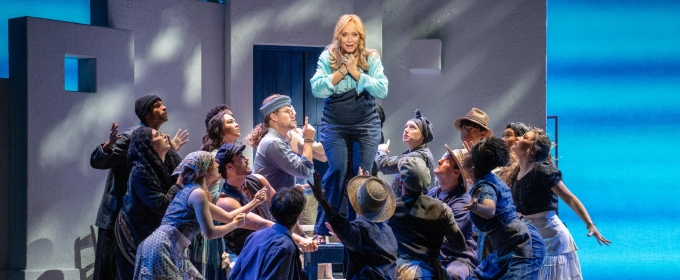 First Look at MAMMA MIA! as it Returns to Broadway
Performances begin this Saturday night, August 2 at the Winter Garden Theatre.
First Look at MAMMA MIA! as it Returns to Broadway
Performances begin this Saturday night, August 2 at the Winter Garden Theatre.
 Robyn Hurder, Andrew Durand, and More Star in HIGH SOCIETY at Ogunquit Playhouse
The production runs July 24 through August 23 in Ogunquit, Maine.
Robyn Hurder, Andrew Durand, and More Star in HIGH SOCIETY at Ogunquit Playhouse
The production runs July 24 through August 23 in Ogunquit, Maine.
 Photo: MY NEIGHBOUR TOTORO Releases New Artwork
The new artwork captures the iconic bus stop scene where Mei and Satuski encounter the forest spirit Totoro for the first time together.
Photo: MY NEIGHBOUR TOTORO Releases New Artwork
The new artwork captures the iconic bus stop scene where Mei and Satuski encounter the forest spirit Totoro for the first time together.
 Josh Gad Rocks the Hollywood Bowl As JESUS CHRIST SUPERSTAR's 'King Herod'
Gad returned to the production after beating COVID to perform the iconic role.
Josh Gad Rocks the Hollywood Bowl As JESUS CHRIST SUPERSTAR's 'King Herod'
Gad returned to the production after beating COVID to perform the iconic role.
 Taye Diggs and Wayne Brady in MOULIN ROUGE! THE MUSICAL
Taye Diggs plays through September 28, with Wayne Brady staying through November 9.
Taye Diggs and Wayne Brady in MOULIN ROUGE! THE MUSICAL
Taye Diggs plays through September 28, with Wayne Brady staying through November 9.
 First Look at MAMMA MIA! as it Returns to Broadway
Performances begin this Saturday night, August 2 at the Winter Garden Theatre.
First Look at MAMMA MIA! as it Returns to Broadway
Performances begin this Saturday night, August 2 at the Winter Garden Theatre.
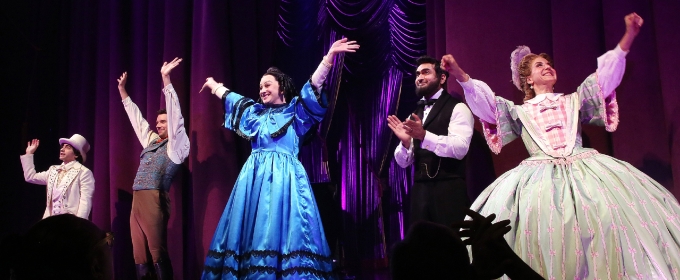 Jinkx Monsoon, Michael Urie, and More First Bows in OH, MARY!
They join the cast for performances through September 28 at the historic Lyceum Theatre.
Jinkx Monsoon, Michael Urie, and More First Bows in OH, MARY!
They join the cast for performances through September 28 at the historic Lyceum Theatre.
 Photo: MY NEIGHBOUR TOTORO Releases New Artwork
The new artwork captures the iconic bus stop scene where Mei and Satuski encounter the forest spirit Totoro for the first time together.
Photo: MY NEIGHBOUR TOTORO Releases New Artwork
The new artwork captures the iconic bus stop scene where Mei and Satuski encounter the forest spirit Totoro for the first time together.
 Josh Gad Rocks the Hollywood Bowl As JESUS CHRIST SUPERSTAR's 'King Herod'
Gad returned to the production after beating COVID to perform the iconic role.
Josh Gad Rocks the Hollywood Bowl As JESUS CHRIST SUPERSTAR's 'King Herod'
Gad returned to the production after beating COVID to perform the iconic role.
 Taye Diggs and Wayne Brady in MOULIN ROUGE! THE MUSICAL
Taye Diggs plays through September 28, with Wayne Brady staying through November 9.
Taye Diggs and Wayne Brady in MOULIN ROUGE! THE MUSICAL
Taye Diggs plays through September 28, with Wayne Brady staying through November 9.
 First Look at MAMMA MIA! as it Returns to Broadway
Performances begin this Saturday night, August 2 at the Winter Garden Theatre.
First Look at MAMMA MIA! as it Returns to Broadway
Performances begin this Saturday night, August 2 at the Winter Garden Theatre.
 Jinkx Monsoon, Michael Urie, and More First Bows in OH, MARY!
They join the cast for performances through September 28 at the historic Lyceum Theatre.
Jinkx Monsoon, Michael Urie, and More First Bows in OH, MARY!
They join the cast for performances through September 28 at the historic Lyceum Theatre.
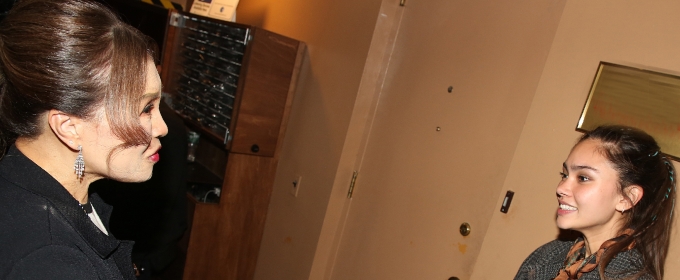 Princess of Thailand Visits HADESTOWN on Broadway
She attended the show to visit Hadestown cast member Myra Molloy, who plays Eurydice and is originally from Thailand. See photos here!
Princess of Thailand Visits HADESTOWN on Broadway
She attended the show to visit Hadestown cast member Myra Molloy, who plays Eurydice and is originally from Thailand. See photos here!
 Josh Gad Rocks the Hollywood Bowl As JESUS CHRIST SUPERSTAR's 'King Herod'
Gad returned to the production after beating COVID to perform the iconic role.
Josh Gad Rocks the Hollywood Bowl As JESUS CHRIST SUPERSTAR's 'King Herod'
Gad returned to the production after beating COVID to perform the iconic role.
 Taye Diggs and Wayne Brady in MOULIN ROUGE! THE MUSICAL
Taye Diggs plays through September 28, with Wayne Brady staying through November 9.
Taye Diggs and Wayne Brady in MOULIN ROUGE! THE MUSICAL
Taye Diggs plays through September 28, with Wayne Brady staying through November 9.
 First Look at MAMMA MIA! as it Returns to Broadway
Performances begin this Saturday night, August 2 at the Winter Garden Theatre.
First Look at MAMMA MIA! as it Returns to Broadway
Performances begin this Saturday night, August 2 at the Winter Garden Theatre.
 Jinkx Monsoon, Michael Urie, and More First Bows in OH, MARY!
They join the cast for performances through September 28 at the historic Lyceum Theatre.
Jinkx Monsoon, Michael Urie, and More First Bows in OH, MARY!
They join the cast for performances through September 28 at the historic Lyceum Theatre.
 Princess of Thailand Visits HADESTOWN on Broadway
She attended the show to visit Hadestown cast member Myra Molloy, who plays Eurydice and is originally from Thailand. See photos here!
Princess of Thailand Visits HADESTOWN on Broadway
She attended the show to visit Hadestown cast member Myra Molloy, who plays Eurydice and is originally from Thailand. See photos here!
 On the Red Carpet for A CHORUS LINE's 50th Anniversary
The event benefitted the Entertainment Community Fund’s programs serving dance professionals.
On the Red Carpet for A CHORUS LINE's 50th Anniversary
The event benefitted the Entertainment Community Fund’s programs serving dance professionals.
 Taye Diggs and Wayne Brady in MOULIN ROUGE! THE MUSICAL
Taye Diggs plays through September 28, with Wayne Brady staying through November 9.
Taye Diggs and Wayne Brady in MOULIN ROUGE! THE MUSICAL
Taye Diggs plays through September 28, with Wayne Brady staying through November 9.
 First Look at MAMMA MIA! as it Returns to Broadway
Performances begin this Saturday night, August 2 at the Winter Garden Theatre.
First Look at MAMMA MIA! as it Returns to Broadway
Performances begin this Saturday night, August 2 at the Winter Garden Theatre.
 Jinkx Monsoon, Michael Urie, and More First Bows in OH, MARY!
They join the cast for performances through September 28 at the historic Lyceum Theatre.
Jinkx Monsoon, Michael Urie, and More First Bows in OH, MARY!
They join the cast for performances through September 28 at the historic Lyceum Theatre.
 Princess of Thailand Visits HADESTOWN on Broadway
She attended the show to visit Hadestown cast member Myra Molloy, who plays Eurydice and is originally from Thailand. See photos here!
Princess of Thailand Visits HADESTOWN on Broadway
She attended the show to visit Hadestown cast member Myra Molloy, who plays Eurydice and is originally from Thailand. See photos here!
 On the Red Carpet for A CHORUS LINE's 50th Anniversary
The event benefitted the Entertainment Community Fund’s programs serving dance professionals.
On the Red Carpet for A CHORUS LINE's 50th Anniversary
The event benefitted the Entertainment Community Fund’s programs serving dance professionals.
 Review: ANNE BOLEYN: THE MUSICAL, Hever Castle
Hever Castle's heart returns to take her rightful place this August.
Review: ANNE BOLEYN: THE MUSICAL, Hever Castle
Hever Castle's heart returns to take her rightful place this August.
 First Look at MAMMA MIA! as it Returns to Broadway
Performances begin this Saturday night, August 2 at the Winter Garden Theatre.
First Look at MAMMA MIA! as it Returns to Broadway
Performances begin this Saturday night, August 2 at the Winter Garden Theatre.
 Jinkx Monsoon, Michael Urie, and More First Bows in OH, MARY!
They join the cast for performances through September 28 at the historic Lyceum Theatre.
Jinkx Monsoon, Michael Urie, and More First Bows in OH, MARY!
They join the cast for performances through September 28 at the historic Lyceum Theatre.
 Princess of Thailand Visits HADESTOWN on Broadway
She attended the show to visit Hadestown cast member Myra Molloy, who plays Eurydice and is originally from Thailand. See photos here!
Princess of Thailand Visits HADESTOWN on Broadway
She attended the show to visit Hadestown cast member Myra Molloy, who plays Eurydice and is originally from Thailand. See photos here!
 On the Red Carpet for A CHORUS LINE's 50th Anniversary
The event benefitted the Entertainment Community Fund’s programs serving dance professionals.
On the Red Carpet for A CHORUS LINE's 50th Anniversary
The event benefitted the Entertainment Community Fund’s programs serving dance professionals.
 Review: ANNE BOLEYN: THE MUSICAL, Hever Castle
Hever Castle's heart returns to take her rightful place this August.
Review: ANNE BOLEYN: THE MUSICAL, Hever Castle
Hever Castle's heart returns to take her rightful place this August.
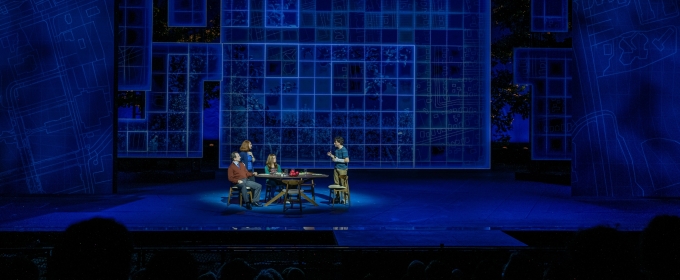 Michael Fabisch, Rob McClure, Jackie Burns and More in DEAR EVAN HANSEN at The Muny
The musical is now running through August 3.
Michael Fabisch, Rob McClure, Jackie Burns and More in DEAR EVAN HANSEN at The Muny
The musical is now running through August 3.
 Jinkx Monsoon, Michael Urie, and More First Bows in OH, MARY!
They join the cast for performances through September 28 at the historic Lyceum Theatre.
Jinkx Monsoon, Michael Urie, and More First Bows in OH, MARY!
They join the cast for performances through September 28 at the historic Lyceum Theatre.
 Princess of Thailand Visits HADESTOWN on Broadway
She attended the show to visit Hadestown cast member Myra Molloy, who plays Eurydice and is originally from Thailand. See photos here!
Princess of Thailand Visits HADESTOWN on Broadway
She attended the show to visit Hadestown cast member Myra Molloy, who plays Eurydice and is originally from Thailand. See photos here!
 On the Red Carpet for A CHORUS LINE's 50th Anniversary
The event benefitted the Entertainment Community Fund’s programs serving dance professionals.
On the Red Carpet for A CHORUS LINE's 50th Anniversary
The event benefitted the Entertainment Community Fund’s programs serving dance professionals.
 Review: ANNE BOLEYN: THE MUSICAL, Hever Castle
Hever Castle's heart returns to take her rightful place this August.
Review: ANNE BOLEYN: THE MUSICAL, Hever Castle
Hever Castle's heart returns to take her rightful place this August.
 Michael Fabisch, Rob McClure, Jackie Burns and More in DEAR EVAN HANSEN at The Muny
The musical is now running through August 3.
Michael Fabisch, Rob McClure, Jackie Burns and More in DEAR EVAN HANSEN at The Muny
The musical is now running through August 3.
 GINGER TWINSIES Celebrates Its Star-Studded Opening Night
The cast was joined by many familiar faces including Jesse Tyler Ferguson, Lin-Manuel Miranda, Busy Phillips, and more.
GINGER TWINSIES Celebrates Its Star-Studded Opening Night
The cast was joined by many familiar faces including Jesse Tyler Ferguson, Lin-Manuel Miranda, Busy Phillips, and more.
 Princess of Thailand Visits HADESTOWN on Broadway
She attended the show to visit Hadestown cast member Myra Molloy, who plays Eurydice and is originally from Thailand. See photos here!
Princess of Thailand Visits HADESTOWN on Broadway
She attended the show to visit Hadestown cast member Myra Molloy, who plays Eurydice and is originally from Thailand. See photos here!
 On the Red Carpet for A CHORUS LINE's 50th Anniversary
The event benefitted the Entertainment Community Fund’s programs serving dance professionals.
On the Red Carpet for A CHORUS LINE's 50th Anniversary
The event benefitted the Entertainment Community Fund’s programs serving dance professionals.
 Review: ANNE BOLEYN: THE MUSICAL, Hever Castle
Hever Castle's heart returns to take her rightful place this August.
Review: ANNE BOLEYN: THE MUSICAL, Hever Castle
Hever Castle's heart returns to take her rightful place this August.
 Michael Fabisch, Rob McClure, Jackie Burns and More in DEAR EVAN HANSEN at The Muny
The musical is now running through August 3.
Michael Fabisch, Rob McClure, Jackie Burns and More in DEAR EVAN HANSEN at The Muny
The musical is now running through August 3.
 GINGER TWINSIES Celebrates Its Star-Studded Opening Night
The cast was joined by many familiar faces including Jesse Tyler Ferguson, Lin-Manuel Miranda, Busy Phillips, and more.
GINGER TWINSIES Celebrates Its Star-Studded Opening Night
The cast was joined by many familiar faces including Jesse Tyler Ferguson, Lin-Manuel Miranda, Busy Phillips, and more.
 Lin-Manuel Miranda Poses With New Wax Figure
Miranda met his wax twin during a special reveal moment led by Jimmy Fallon.
Lin-Manuel Miranda Poses With New Wax Figure
Miranda met his wax twin during a special reveal moment led by Jimmy Fallon.
 On the Red Carpet for A CHORUS LINE's 50th Anniversary
The event benefitted the Entertainment Community Fund’s programs serving dance professionals.
On the Red Carpet for A CHORUS LINE's 50th Anniversary
The event benefitted the Entertainment Community Fund’s programs serving dance professionals.
 Review: ANNE BOLEYN: THE MUSICAL, Hever Castle
Hever Castle's heart returns to take her rightful place this August.
Review: ANNE BOLEYN: THE MUSICAL, Hever Castle
Hever Castle's heart returns to take her rightful place this August.
 Michael Fabisch, Rob McClure, Jackie Burns and More in DEAR EVAN HANSEN at The Muny
The musical is now running through August 3.
Michael Fabisch, Rob McClure, Jackie Burns and More in DEAR EVAN HANSEN at The Muny
The musical is now running through August 3.
 GINGER TWINSIES Celebrates Its Star-Studded Opening Night
The cast was joined by many familiar faces including Jesse Tyler Ferguson, Lin-Manuel Miranda, Busy Phillips, and more.
GINGER TWINSIES Celebrates Its Star-Studded Opening Night
The cast was joined by many familiar faces including Jesse Tyler Ferguson, Lin-Manuel Miranda, Busy Phillips, and more.
 Lin-Manuel Miranda Poses With New Wax Figure
Miranda met his wax twin during a special reveal moment led by Jimmy Fallon.
Lin-Manuel Miranda Poses With New Wax Figure
Miranda met his wax twin during a special reveal moment led by Jimmy Fallon.
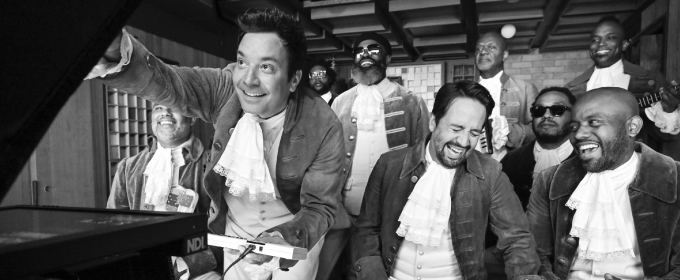 Lin-Manuel Miranda Celebrates HAMILTON and More on THE TONIGHT SHOW STARRING JIMMY FALLON
The episode airs tonight on NBC from 11:35 p.m. to 12:35 a.m. ET/PT
Lin-Manuel Miranda Celebrates HAMILTON and More on THE TONIGHT SHOW STARRING JIMMY FALLON
The episode airs tonight on NBC from 11:35 p.m. to 12:35 a.m. ET/PT
 Review: ANNE BOLEYN: THE MUSICAL, Hever Castle
Hever Castle's heart returns to take her rightful place this August.
Review: ANNE BOLEYN: THE MUSICAL, Hever Castle
Hever Castle's heart returns to take her rightful place this August.
 Michael Fabisch, Rob McClure, Jackie Burns and More in DEAR EVAN HANSEN at The Muny
The musical is now running through August 3.
Michael Fabisch, Rob McClure, Jackie Burns and More in DEAR EVAN HANSEN at The Muny
The musical is now running through August 3.
 GINGER TWINSIES Celebrates Its Star-Studded Opening Night
The cast was joined by many familiar faces including Jesse Tyler Ferguson, Lin-Manuel Miranda, Busy Phillips, and more.
GINGER TWINSIES Celebrates Its Star-Studded Opening Night
The cast was joined by many familiar faces including Jesse Tyler Ferguson, Lin-Manuel Miranda, Busy Phillips, and more.
 Lin-Manuel Miranda Poses With New Wax Figure
Miranda met his wax twin during a special reveal moment led by Jimmy Fallon.
Lin-Manuel Miranda Poses With New Wax Figure
Miranda met his wax twin during a special reveal moment led by Jimmy Fallon.
 Lin-Manuel Miranda Celebrates HAMILTON and More on THE TONIGHT SHOW STARRING JIMMY FALLON
The episode airs tonight on NBC from 11:35 p.m. to 12:35 a.m. ET/PT
Lin-Manuel Miranda Celebrates HAMILTON and More on THE TONIGHT SHOW STARRING JIMMY FALLON
The episode airs tonight on NBC from 11:35 p.m. to 12:35 a.m. ET/PT
 GINGER TWINSIES Company Celebrates Opening Night
Ginger Twinsies is running off-Broadway at the Orpheum Theatre.
GINGER TWINSIES Company Celebrates Opening Night
Ginger Twinsies is running off-Broadway at the Orpheum Theatre.
 Michael Fabisch, Rob McClure, Jackie Burns and More in DEAR EVAN HANSEN at The Muny
The musical is now running through August 3.
Michael Fabisch, Rob McClure, Jackie Burns and More in DEAR EVAN HANSEN at The Muny
The musical is now running through August 3.
 GINGER TWINSIES Celebrates Its Star-Studded Opening Night
The cast was joined by many familiar faces including Jesse Tyler Ferguson, Lin-Manuel Miranda, Busy Phillips, and more.
GINGER TWINSIES Celebrates Its Star-Studded Opening Night
The cast was joined by many familiar faces including Jesse Tyler Ferguson, Lin-Manuel Miranda, Busy Phillips, and more.
 Lin-Manuel Miranda Poses With New Wax Figure
Miranda met his wax twin during a special reveal moment led by Jimmy Fallon.
Lin-Manuel Miranda Poses With New Wax Figure
Miranda met his wax twin during a special reveal moment led by Jimmy Fallon.
 Lin-Manuel Miranda Celebrates HAMILTON and More on THE TONIGHT SHOW STARRING JIMMY FALLON
The episode airs tonight on NBC from 11:35 p.m. to 12:35 a.m. ET/PT
Lin-Manuel Miranda Celebrates HAMILTON and More on THE TONIGHT SHOW STARRING JIMMY FALLON
The episode airs tonight on NBC from 11:35 p.m. to 12:35 a.m. ET/PT
 GINGER TWINSIES Company Celebrates Opening Night
Ginger Twinsies is running off-Broadway at the Orpheum Theatre.
GINGER TWINSIES Company Celebrates Opening Night
Ginger Twinsies is running off-Broadway at the Orpheum Theatre.
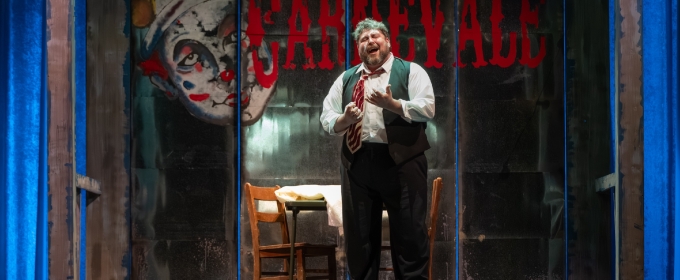 Review: 'JOSEPHINE' & 'PAGLIACCI' at Union Avenue Opera
runs through August 2
Review: 'JOSEPHINE' & 'PAGLIACCI' at Union Avenue Opera
runs through August 2
 GINGER TWINSIES Celebrates Its Star-Studded Opening Night
The cast was joined by many familiar faces including Jesse Tyler Ferguson, Lin-Manuel Miranda, Busy Phillips, and more.
GINGER TWINSIES Celebrates Its Star-Studded Opening Night
The cast was joined by many familiar faces including Jesse Tyler Ferguson, Lin-Manuel Miranda, Busy Phillips, and more.
 Lin-Manuel Miranda Poses With New Wax Figure
Miranda met his wax twin during a special reveal moment led by Jimmy Fallon.
Lin-Manuel Miranda Poses With New Wax Figure
Miranda met his wax twin during a special reveal moment led by Jimmy Fallon.
 Lin-Manuel Miranda Celebrates HAMILTON and More on THE TONIGHT SHOW STARRING JIMMY FALLON
The episode airs tonight on NBC from 11:35 p.m. to 12:35 a.m. ET/PT
Lin-Manuel Miranda Celebrates HAMILTON and More on THE TONIGHT SHOW STARRING JIMMY FALLON
The episode airs tonight on NBC from 11:35 p.m. to 12:35 a.m. ET/PT
 GINGER TWINSIES Company Celebrates Opening Night
Ginger Twinsies is running off-Broadway at the Orpheum Theatre.
GINGER TWINSIES Company Celebrates Opening Night
Ginger Twinsies is running off-Broadway at the Orpheum Theatre.
 Review: 'JOSEPHINE' & 'PAGLIACCI' at Union Avenue Opera
runs through August 2
Review: 'JOSEPHINE' & 'PAGLIACCI' at Union Avenue Opera
runs through August 2
 MAMMA MIA! on Broadway Hosts Alumni Night
Mamma Mia will play at the Winter Garden through Sunday, February 1, 2026.
MAMMA MIA! on Broadway Hosts Alumni Night
Mamma Mia will play at the Winter Garden through Sunday, February 1, 2026.
 Lin-Manuel Miranda Poses With New Wax Figure
Miranda met his wax twin during a special reveal moment led by Jimmy Fallon.
Lin-Manuel Miranda Poses With New Wax Figure
Miranda met his wax twin during a special reveal moment led by Jimmy Fallon.
 Lin-Manuel Miranda Celebrates HAMILTON and More on THE TONIGHT SHOW STARRING JIMMY FALLON
The episode airs tonight on NBC from 11:35 p.m. to 12:35 a.m. ET/PT
Lin-Manuel Miranda Celebrates HAMILTON and More on THE TONIGHT SHOW STARRING JIMMY FALLON
The episode airs tonight on NBC from 11:35 p.m. to 12:35 a.m. ET/PT
 GINGER TWINSIES Company Celebrates Opening Night
Ginger Twinsies is running off-Broadway at the Orpheum Theatre.
GINGER TWINSIES Company Celebrates Opening Night
Ginger Twinsies is running off-Broadway at the Orpheum Theatre.
 Review: 'JOSEPHINE' & 'PAGLIACCI' at Union Avenue Opera
runs through August 2
Review: 'JOSEPHINE' & 'PAGLIACCI' at Union Avenue Opera
runs through August 2
 MAMMA MIA! on Broadway Hosts Alumni Night
Mamma Mia will play at the Winter Garden through Sunday, February 1, 2026.
MAMMA MIA! on Broadway Hosts Alumni Night
Mamma Mia will play at the Winter Garden through Sunday, February 1, 2026.
 On the Opening Night Red Carpet for GINGER TWINSIES
Ginger Twinsies is running off-Broadway at the Orpheum Theatre.
On the Opening Night Red Carpet for GINGER TWINSIES
Ginger Twinsies is running off-Broadway at the Orpheum Theatre.
 Lin-Manuel Miranda Celebrates HAMILTON and More on THE TONIGHT SHOW STARRING JIMMY FALLON
The episode airs tonight on NBC from 11:35 p.m. to 12:35 a.m. ET/PT
Lin-Manuel Miranda Celebrates HAMILTON and More on THE TONIGHT SHOW STARRING JIMMY FALLON
The episode airs tonight on NBC from 11:35 p.m. to 12:35 a.m. ET/PT
 GINGER TWINSIES Company Celebrates Opening Night
Ginger Twinsies is running off-Broadway at the Orpheum Theatre.
GINGER TWINSIES Company Celebrates Opening Night
Ginger Twinsies is running off-Broadway at the Orpheum Theatre.
 Review: 'JOSEPHINE' & 'PAGLIACCI' at Union Avenue Opera
runs through August 2
Review: 'JOSEPHINE' & 'PAGLIACCI' at Union Avenue Opera
runs through August 2
 MAMMA MIA! on Broadway Hosts Alumni Night
Mamma Mia will play at the Winter Garden through Sunday, February 1, 2026.
MAMMA MIA! on Broadway Hosts Alumni Night
Mamma Mia will play at the Winter Garden through Sunday, February 1, 2026.
 On the Opening Night Red Carpet for GINGER TWINSIES
Ginger Twinsies is running off-Broadway at the Orpheum Theatre.
On the Opening Night Red Carpet for GINGER TWINSIES
Ginger Twinsies is running off-Broadway at the Orpheum Theatre.
 Frankie Grande Visits STRANGER THINGS: THE FIRST SHADOW
He saw the show two days in a row this week, bringing his mother Joan to the show to meet the cast as well.
Frankie Grande Visits STRANGER THINGS: THE FIRST SHADOW
He saw the show two days in a row this week, bringing his mother Joan to the show to meet the cast as well.
 GINGER TWINSIES Company Celebrates Opening Night
Ginger Twinsies is running off-Broadway at the Orpheum Theatre.
GINGER TWINSIES Company Celebrates Opening Night
Ginger Twinsies is running off-Broadway at the Orpheum Theatre.
 Review: 'JOSEPHINE' & 'PAGLIACCI' at Union Avenue Opera
runs through August 2
Review: 'JOSEPHINE' & 'PAGLIACCI' at Union Avenue Opera
runs through August 2
 MAMMA MIA! on Broadway Hosts Alumni Night
Mamma Mia will play at the Winter Garden through Sunday, February 1, 2026.
MAMMA MIA! on Broadway Hosts Alumni Night
Mamma Mia will play at the Winter Garden through Sunday, February 1, 2026.
 On the Opening Night Red Carpet for GINGER TWINSIES
Ginger Twinsies is running off-Broadway at the Orpheum Theatre.
On the Opening Night Red Carpet for GINGER TWINSIES
Ginger Twinsies is running off-Broadway at the Orpheum Theatre.
 Frankie Grande Visits STRANGER THINGS: THE FIRST SHADOW
He saw the show two days in a row this week, bringing his mother Joan to the show to meet the cast as well.
Frankie Grande Visits STRANGER THINGS: THE FIRST SHADOW
He saw the show two days in a row this week, bringing his mother Joan to the show to meet the cast as well.
 Lin-Manuel Miranda and Eisa Davis’s WARRIORS Silent Disco
The event began with a cocktail party in LCT3’s Claire Tow Theater followed by the dance party out on The Dance Floor at Josie Robertson Plaza.
Lin-Manuel Miranda and Eisa Davis’s WARRIORS Silent Disco
The event began with a cocktail party in LCT3’s Claire Tow Theater followed by the dance party out on The Dance Floor at Josie Robertson Plaza.
 Review: 'JOSEPHINE' & 'PAGLIACCI' at Union Avenue Opera
runs through August 2
Review: 'JOSEPHINE' & 'PAGLIACCI' at Union Avenue Opera
runs through August 2
 MAMMA MIA! on Broadway Hosts Alumni Night
Mamma Mia will play at the Winter Garden through Sunday, February 1, 2026.
MAMMA MIA! on Broadway Hosts Alumni Night
Mamma Mia will play at the Winter Garden through Sunday, February 1, 2026.
 On the Opening Night Red Carpet for GINGER TWINSIES
Ginger Twinsies is running off-Broadway at the Orpheum Theatre.
On the Opening Night Red Carpet for GINGER TWINSIES
Ginger Twinsies is running off-Broadway at the Orpheum Theatre.
 Frankie Grande Visits STRANGER THINGS: THE FIRST SHADOW
He saw the show two days in a row this week, bringing his mother Joan to the show to meet the cast as well.
Frankie Grande Visits STRANGER THINGS: THE FIRST SHADOW
He saw the show two days in a row this week, bringing his mother Joan to the show to meet the cast as well.
 Lin-Manuel Miranda and Eisa Davis’s WARRIORS Silent Disco
The event began with a cocktail party in LCT3’s Claire Tow Theater followed by the dance party out on The Dance Floor at Josie Robertson Plaza.
Lin-Manuel Miranda and Eisa Davis’s WARRIORS Silent Disco
The event began with a cocktail party in LCT3’s Claire Tow Theater followed by the dance party out on The Dance Floor at Josie Robertson Plaza.
 Broadway's Carole Demas Makes Solo Cabaret Debut in FIREFLY at 54 Below
The unforgettable show, celebrating the star's long Broadway and TV career, returns 9/6
Broadway's Carole Demas Makes Solo Cabaret Debut in FIREFLY at 54 Below
The unforgettable show, celebrating the star's long Broadway and TV career, returns 9/6
 MAMMA MIA! on Broadway Hosts Alumni Night
Mamma Mia will play at the Winter Garden through Sunday, February 1, 2026.
MAMMA MIA! on Broadway Hosts Alumni Night
Mamma Mia will play at the Winter Garden through Sunday, February 1, 2026.
 On the Opening Night Red Carpet for GINGER TWINSIES
Ginger Twinsies is running off-Broadway at the Orpheum Theatre.
On the Opening Night Red Carpet for GINGER TWINSIES
Ginger Twinsies is running off-Broadway at the Orpheum Theatre.
 Frankie Grande Visits STRANGER THINGS: THE FIRST SHADOW
He saw the show two days in a row this week, bringing his mother Joan to the show to meet the cast as well.
Frankie Grande Visits STRANGER THINGS: THE FIRST SHADOW
He saw the show two days in a row this week, bringing his mother Joan to the show to meet the cast as well.
 Lin-Manuel Miranda and Eisa Davis’s WARRIORS Silent Disco
The event began with a cocktail party in LCT3’s Claire Tow Theater followed by the dance party out on The Dance Floor at Josie Robertson Plaza.
Lin-Manuel Miranda and Eisa Davis’s WARRIORS Silent Disco
The event began with a cocktail party in LCT3’s Claire Tow Theater followed by the dance party out on The Dance Floor at Josie Robertson Plaza.
 Broadway's Carole Demas Makes Solo Cabaret Debut in FIREFLY at 54 Below
The unforgettable show, celebrating the star's long Broadway and TV career, returns 9/6
Broadway's Carole Demas Makes Solo Cabaret Debut in FIREFLY at 54 Below
The unforgettable show, celebrating the star's long Broadway and TV career, returns 9/6
 Inside the HAMILTEN Celebration and Block Party
Yesterday, Wednesday, August 6, 2025, Hamilton celebrated 10 years on Broadway with celebrations throughout the day.
Inside the HAMILTEN Celebration and Block Party
Yesterday, Wednesday, August 6, 2025, Hamilton celebrated 10 years on Broadway with celebrations throughout the day.
 On the Opening Night Red Carpet for GINGER TWINSIES
Ginger Twinsies is running off-Broadway at the Orpheum Theatre.
On the Opening Night Red Carpet for GINGER TWINSIES
Ginger Twinsies is running off-Broadway at the Orpheum Theatre.
 Frankie Grande Visits STRANGER THINGS: THE FIRST SHADOW
He saw the show two days in a row this week, bringing his mother Joan to the show to meet the cast as well.
Frankie Grande Visits STRANGER THINGS: THE FIRST SHADOW
He saw the show two days in a row this week, bringing his mother Joan to the show to meet the cast as well.
 Lin-Manuel Miranda and Eisa Davis’s WARRIORS Silent Disco
The event began with a cocktail party in LCT3’s Claire Tow Theater followed by the dance party out on The Dance Floor at Josie Robertson Plaza.
Lin-Manuel Miranda and Eisa Davis’s WARRIORS Silent Disco
The event began with a cocktail party in LCT3’s Claire Tow Theater followed by the dance party out on The Dance Floor at Josie Robertson Plaza.
 Broadway's Carole Demas Makes Solo Cabaret Debut in FIREFLY at 54 Below
The unforgettable show, celebrating the star's long Broadway and TV career, returns 9/6
Broadway's Carole Demas Makes Solo Cabaret Debut in FIREFLY at 54 Below
The unforgettable show, celebrating the star's long Broadway and TV career, returns 9/6
 Inside the HAMILTEN Celebration and Block Party
Yesterday, Wednesday, August 6, 2025, Hamilton celebrated 10 years on Broadway with celebrations throughout the day.
Inside the HAMILTEN Celebration and Block Party
Yesterday, Wednesday, August 6, 2025, Hamilton celebrated 10 years on Broadway with celebrations throughout the day.
 Teyana Taylor & Aaron Pierre Visit CHICAGO on Broadway
Chicago is currently running on Broadway at the Ambassador Theatre.
Teyana Taylor & Aaron Pierre Visit CHICAGO on Broadway
Chicago is currently running on Broadway at the Ambassador Theatre.
 Frankie Grande Visits STRANGER THINGS: THE FIRST SHADOW
He saw the show two days in a row this week, bringing his mother Joan to the show to meet the cast as well.
Frankie Grande Visits STRANGER THINGS: THE FIRST SHADOW
He saw the show two days in a row this week, bringing his mother Joan to the show to meet the cast as well.
 Lin-Manuel Miranda and Eisa Davis’s WARRIORS Silent Disco
The event began with a cocktail party in LCT3’s Claire Tow Theater followed by the dance party out on The Dance Floor at Josie Robertson Plaza.
Lin-Manuel Miranda and Eisa Davis’s WARRIORS Silent Disco
The event began with a cocktail party in LCT3’s Claire Tow Theater followed by the dance party out on The Dance Floor at Josie Robertson Plaza.
 Broadway's Carole Demas Makes Solo Cabaret Debut in FIREFLY at 54 Below
The unforgettable show, celebrating the star's long Broadway and TV career, returns 9/6
Broadway's Carole Demas Makes Solo Cabaret Debut in FIREFLY at 54 Below
The unforgettable show, celebrating the star's long Broadway and TV career, returns 9/6
 Inside the HAMILTEN Celebration and Block Party
Yesterday, Wednesday, August 6, 2025, Hamilton celebrated 10 years on Broadway with celebrations throughout the day.
Inside the HAMILTEN Celebration and Block Party
Yesterday, Wednesday, August 6, 2025, Hamilton celebrated 10 years on Broadway with celebrations throughout the day.
 Teyana Taylor & Aaron Pierre Visit CHICAGO on Broadway
Chicago is currently running on Broadway at the Ambassador Theatre.
Teyana Taylor & Aaron Pierre Visit CHICAGO on Broadway
Chicago is currently running on Broadway at the Ambassador Theatre.
 Review: MJ Dazzles at Broadway San Jose
Playing now thru August 3, this extraordinary show is an experience you can't miss!
Review: MJ Dazzles at Broadway San Jose
Playing now thru August 3, this extraordinary show is an experience you can't miss!
 Lin-Manuel Miranda and Eisa Davis’s WARRIORS Silent Disco
The event began with a cocktail party in LCT3’s Claire Tow Theater followed by the dance party out on The Dance Floor at Josie Robertson Plaza.
Lin-Manuel Miranda and Eisa Davis’s WARRIORS Silent Disco
The event began with a cocktail party in LCT3’s Claire Tow Theater followed by the dance party out on The Dance Floor at Josie Robertson Plaza.
 Broadway's Carole Demas Makes Solo Cabaret Debut in FIREFLY at 54 Below
The unforgettable show, celebrating the star's long Broadway and TV career, returns 9/6
Broadway's Carole Demas Makes Solo Cabaret Debut in FIREFLY at 54 Below
The unforgettable show, celebrating the star's long Broadway and TV career, returns 9/6
 Inside the HAMILTEN Celebration and Block Party
Yesterday, Wednesday, August 6, 2025, Hamilton celebrated 10 years on Broadway with celebrations throughout the day.
Inside the HAMILTEN Celebration and Block Party
Yesterday, Wednesday, August 6, 2025, Hamilton celebrated 10 years on Broadway with celebrations throughout the day.
 Teyana Taylor & Aaron Pierre Visit CHICAGO on Broadway
Chicago is currently running on Broadway at the Ambassador Theatre.
Teyana Taylor & Aaron Pierre Visit CHICAGO on Broadway
Chicago is currently running on Broadway at the Ambassador Theatre.
 Review: MJ Dazzles at Broadway San Jose
Playing now thru August 3, this extraordinary show is an experience you can't miss!
Review: MJ Dazzles at Broadway San Jose
Playing now thru August 3, this extraordinary show is an experience you can't miss!
 Todrick Hall, Jess Folley, and More in BURLESQUE THE MUSICAL
The show is currently playing at the Savoy Theatre in London’s West End until 6 September.
Todrick Hall, Jess Folley, and More in BURLESQUE THE MUSICAL
The show is currently playing at the Savoy Theatre in London’s West End until 6 September.
 Broadway's Carole Demas Makes Solo Cabaret Debut in FIREFLY at 54 Below
The unforgettable show, celebrating the star's long Broadway and TV career, returns 9/6
Broadway's Carole Demas Makes Solo Cabaret Debut in FIREFLY at 54 Below
The unforgettable show, celebrating the star's long Broadway and TV career, returns 9/6
 Inside the HAMILTEN Celebration and Block Party
Yesterday, Wednesday, August 6, 2025, Hamilton celebrated 10 years on Broadway with celebrations throughout the day.
Inside the HAMILTEN Celebration and Block Party
Yesterday, Wednesday, August 6, 2025, Hamilton celebrated 10 years on Broadway with celebrations throughout the day.
 Teyana Taylor & Aaron Pierre Visit CHICAGO on Broadway
Chicago is currently running on Broadway at the Ambassador Theatre.
Teyana Taylor & Aaron Pierre Visit CHICAGO on Broadway
Chicago is currently running on Broadway at the Ambassador Theatre.
 Review: MJ Dazzles at Broadway San Jose
Playing now thru August 3, this extraordinary show is an experience you can't miss!
Review: MJ Dazzles at Broadway San Jose
Playing now thru August 3, this extraordinary show is an experience you can't miss!
 Todrick Hall, Jess Folley, and More in BURLESQUE THE MUSICAL
The show is currently playing at the Savoy Theatre in London’s West End until 6 September.
Todrick Hall, Jess Folley, and More in BURLESQUE THE MUSICAL
The show is currently playing at the Savoy Theatre in London’s West End until 6 September.
 Cynthia Erivo and More in JESUS CHRIST SUPERSTAR
The cast also featured Phillipa Soo as Mary Magdalene and John Stamos as King Herod; Milo Manheim as Peter; and Raúl Esparza as Pontius Pilate.
Cynthia Erivo and More in JESUS CHRIST SUPERSTAR
The cast also featured Phillipa Soo as Mary Magdalene and John Stamos as King Herod; Milo Manheim as Peter; and Raúl Esparza as Pontius Pilate.
 Inside the HAMILTEN Celebration and Block Party
Yesterday, Wednesday, August 6, 2025, Hamilton celebrated 10 years on Broadway with celebrations throughout the day.
Inside the HAMILTEN Celebration and Block Party
Yesterday, Wednesday, August 6, 2025, Hamilton celebrated 10 years on Broadway with celebrations throughout the day.
 Teyana Taylor & Aaron Pierre Visit CHICAGO on Broadway
Chicago is currently running on Broadway at the Ambassador Theatre.
Teyana Taylor & Aaron Pierre Visit CHICAGO on Broadway
Chicago is currently running on Broadway at the Ambassador Theatre.
 Review: MJ Dazzles at Broadway San Jose
Playing now thru August 3, this extraordinary show is an experience you can't miss!
Review: MJ Dazzles at Broadway San Jose
Playing now thru August 3, this extraordinary show is an experience you can't miss!
 Todrick Hall, Jess Folley, and More in BURLESQUE THE MUSICAL
The show is currently playing at the Savoy Theatre in London’s West End until 6 September.
Todrick Hall, Jess Folley, and More in BURLESQUE THE MUSICAL
The show is currently playing at the Savoy Theatre in London’s West End until 6 September.
 Cynthia Erivo and More in JESUS CHRIST SUPERSTAR
The cast also featured Phillipa Soo as Mary Magdalene and John Stamos as King Herod; Milo Manheim as Peter; and Raúl Esparza as Pontius Pilate.
Cynthia Erivo and More in JESUS CHRIST SUPERSTAR
The cast also featured Phillipa Soo as Mary Magdalene and John Stamos as King Herod; Milo Manheim as Peter; and Raúl Esparza as Pontius Pilate.
 Inside A CHORUS LINE's 50th Anniversary Celebration
The event featured original stars Baayork Lee, Kelly Bishop, Wayne Cilento,
Inside A CHORUS LINE's 50th Anniversary Celebration
The event featured original stars Baayork Lee, Kelly Bishop, Wayne Cilento,
 Teyana Taylor & Aaron Pierre Visit CHICAGO on Broadway
Chicago is currently running on Broadway at the Ambassador Theatre.
Teyana Taylor & Aaron Pierre Visit CHICAGO on Broadway
Chicago is currently running on Broadway at the Ambassador Theatre.
 Review: MJ Dazzles at Broadway San Jose
Playing now thru August 3, this extraordinary show is an experience you can't miss!
Review: MJ Dazzles at Broadway San Jose
Playing now thru August 3, this extraordinary show is an experience you can't miss!
 Todrick Hall, Jess Folley, and More in BURLESQUE THE MUSICAL
The show is currently playing at the Savoy Theatre in London’s West End until 6 September.
Todrick Hall, Jess Folley, and More in BURLESQUE THE MUSICAL
The show is currently playing at the Savoy Theatre in London’s West End until 6 September.
 Cynthia Erivo and More in JESUS CHRIST SUPERSTAR
The cast also featured Phillipa Soo as Mary Magdalene and John Stamos as King Herod; Milo Manheim as Peter; and Raúl Esparza as Pontius Pilate.
Cynthia Erivo and More in JESUS CHRIST SUPERSTAR
The cast also featured Phillipa Soo as Mary Magdalene and John Stamos as King Herod; Milo Manheim as Peter; and Raúl Esparza as Pontius Pilate.
 Inside A CHORUS LINE's 50th Anniversary Celebration
The event featured original stars Baayork Lee, Kelly Bishop, Wayne Cilento,
Inside A CHORUS LINE's 50th Anniversary Celebration
The event featured original stars Baayork Lee, Kelly Bishop, Wayne Cilento,
 Lea Salonga, Arielle Jacobs, and More in Theatre Group Asia's INTO THE WOODS
The show pays tribute to the late Bobby Garcia, Theatre Group Asia's co-founder.
Lea Salonga, Arielle Jacobs, and More in Theatre Group Asia's INTO THE WOODS
The show pays tribute to the late Bobby Garcia, Theatre Group Asia's co-founder.
 Review: MJ Dazzles at Broadway San Jose
Playing now thru August 3, this extraordinary show is an experience you can't miss!
Review: MJ Dazzles at Broadway San Jose
Playing now thru August 3, this extraordinary show is an experience you can't miss!
 Todrick Hall, Jess Folley, and More in BURLESQUE THE MUSICAL
The show is currently playing at the Savoy Theatre in London’s West End until 6 September.
Todrick Hall, Jess Folley, and More in BURLESQUE THE MUSICAL
The show is currently playing at the Savoy Theatre in London’s West End until 6 September.
 Cynthia Erivo and More in JESUS CHRIST SUPERSTAR
The cast also featured Phillipa Soo as Mary Magdalene and John Stamos as King Herod; Milo Manheim as Peter; and Raúl Esparza as Pontius Pilate.
Cynthia Erivo and More in JESUS CHRIST SUPERSTAR
The cast also featured Phillipa Soo as Mary Magdalene and John Stamos as King Herod; Milo Manheim as Peter; and Raúl Esparza as Pontius Pilate.
 Inside A CHORUS LINE's 50th Anniversary Celebration
The event featured original stars Baayork Lee, Kelly Bishop, Wayne Cilento,
Inside A CHORUS LINE's 50th Anniversary Celebration
The event featured original stars Baayork Lee, Kelly Bishop, Wayne Cilento,
 Lea Salonga, Arielle Jacobs, and More in Theatre Group Asia's INTO THE WOODS
The show pays tribute to the late Bobby Garcia, Theatre Group Asia's co-founder.
Lea Salonga, Arielle Jacobs, and More in Theatre Group Asia's INTO THE WOODS
The show pays tribute to the late Bobby Garcia, Theatre Group Asia's co-founder.
 See Costumes Worn by Meryl Streep, Al Pacino & More in the Public's Costume Exhibit
The exhibit will be open Tuesday-Sunday: 11am-2pm and 5-8pm.
See Costumes Worn by Meryl Streep, Al Pacino & More in the Public's Costume Exhibit
The exhibit will be open Tuesday-Sunday: 11am-2pm and 5-8pm.
 Todrick Hall, Jess Folley, and More in BURLESQUE THE MUSICAL
The show is currently playing at the Savoy Theatre in London’s West End until 6 September.
Todrick Hall, Jess Folley, and More in BURLESQUE THE MUSICAL
The show is currently playing at the Savoy Theatre in London’s West End until 6 September.
 Cynthia Erivo and More in JESUS CHRIST SUPERSTAR
The cast also featured Phillipa Soo as Mary Magdalene and John Stamos as King Herod; Milo Manheim as Peter; and Raúl Esparza as Pontius Pilate.
Cynthia Erivo and More in JESUS CHRIST SUPERSTAR
The cast also featured Phillipa Soo as Mary Magdalene and John Stamos as King Herod; Milo Manheim as Peter; and Raúl Esparza as Pontius Pilate.
 Inside A CHORUS LINE's 50th Anniversary Celebration
The event featured original stars Baayork Lee, Kelly Bishop, Wayne Cilento,
Inside A CHORUS LINE's 50th Anniversary Celebration
The event featured original stars Baayork Lee, Kelly Bishop, Wayne Cilento,
 Lea Salonga, Arielle Jacobs, and More in Theatre Group Asia's INTO THE WOODS
The show pays tribute to the late Bobby Garcia, Theatre Group Asia's co-founder.
Lea Salonga, Arielle Jacobs, and More in Theatre Group Asia's INTO THE WOODS
The show pays tribute to the late Bobby Garcia, Theatre Group Asia's co-founder.
 See Costumes Worn by Meryl Streep, Al Pacino & More in the Public's Costume Exhibit
The exhibit will be open Tuesday-Sunday: 11am-2pm and 5-8pm.
See Costumes Worn by Meryl Streep, Al Pacino & More in the Public's Costume Exhibit
The exhibit will be open Tuesday-Sunday: 11am-2pm and 5-8pm.
 First Look at Jinkx Monsoon, Michael Urie & More in OH, MARY!
Monsoon will play 'Mary Todd Lincoln' through September 28 at the Lyceum Theatre.
First Look at Jinkx Monsoon, Michael Urie & More in OH, MARY!
Monsoon will play 'Mary Todd Lincoln' through September 28 at the Lyceum Theatre.
Industry
Get Broadway's #1 Newsletter

West End

GREASE: THE IMMERSIVE MOVIE MUSICAL Contributes to Breast Cancer Now
The charity is dedicated to funding research and supporting those affected by breast cancer.
The charity is dedicated to funding research and supporting those affected by breast cancer.
New York City

Photos: JIM CARUSO'S CAST PARTY Continues To Celebrate Broadway And Jazz At Birdland
Caruso backed by the Symphony Orchestra of Billy Stritch, Daniel Glass, and Michael O’Brien welcomed the likes of Max von Essen, Dez Duron, Eva Noblezada, and more.
Caruso backed by the Symphony Orchestra of Billy Stritch, Daniel Glass, and Michael O’Brien welcomed the likes of Max von Essen, Dez Duron, Eva Noblezada, and more.
United States

Review: Brilliant, Beautiful, Revelatory, MSMT's Monumental Revival of WEST SIDE STORY
The Bernstein-Sondheim Classic Speaks to a New Generation
The Bernstein-Sondheim Classic Speaks to a New Generation
International

EDINBURGH 2025: Review: ALASDAIR BECKETT-KING: KING OF CRUMBS, King Dome At Pleasance Dome
The King of Whimsy is back with the silly and the fantastical
The King of Whimsy is back with the silly and the fantastical



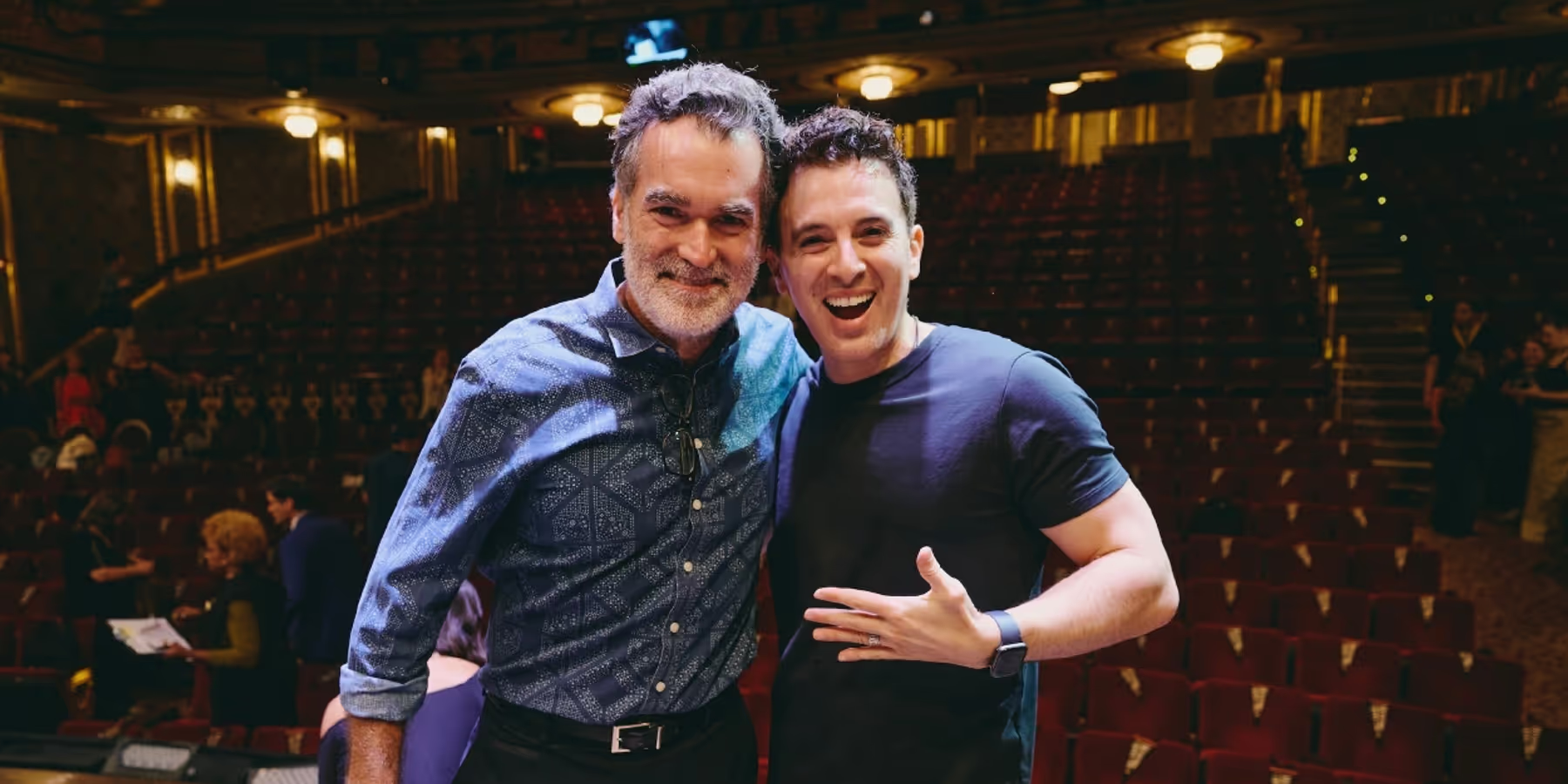


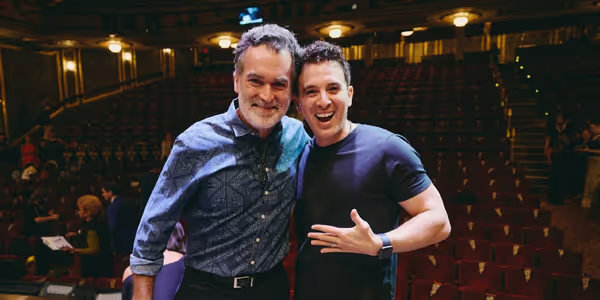








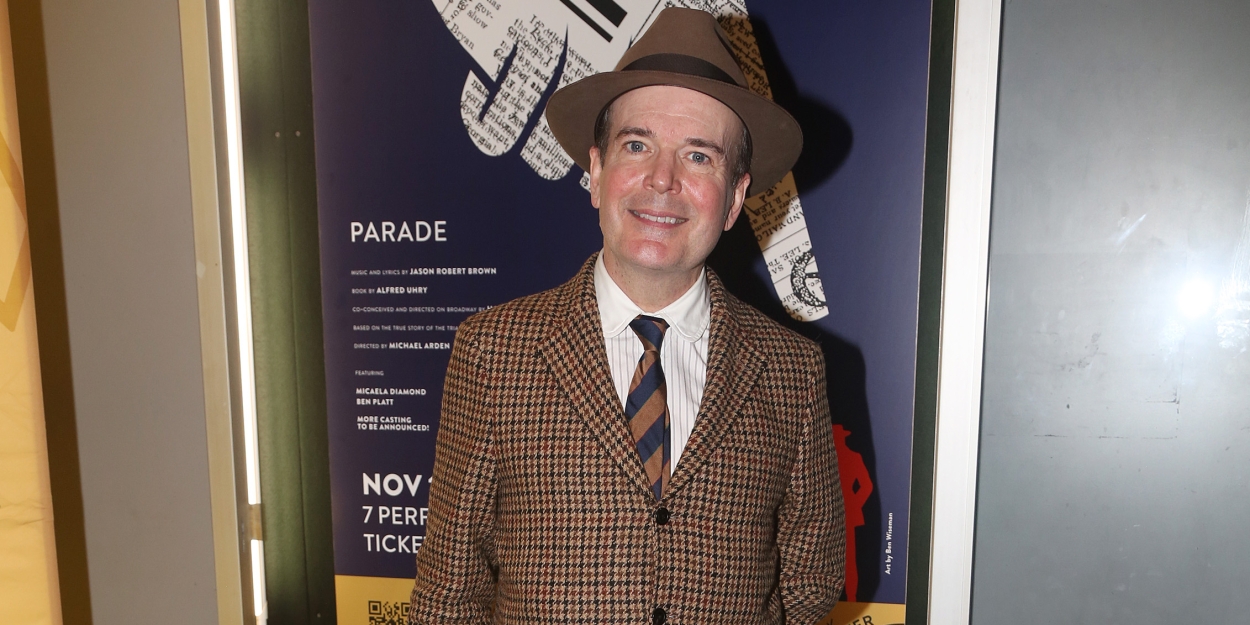


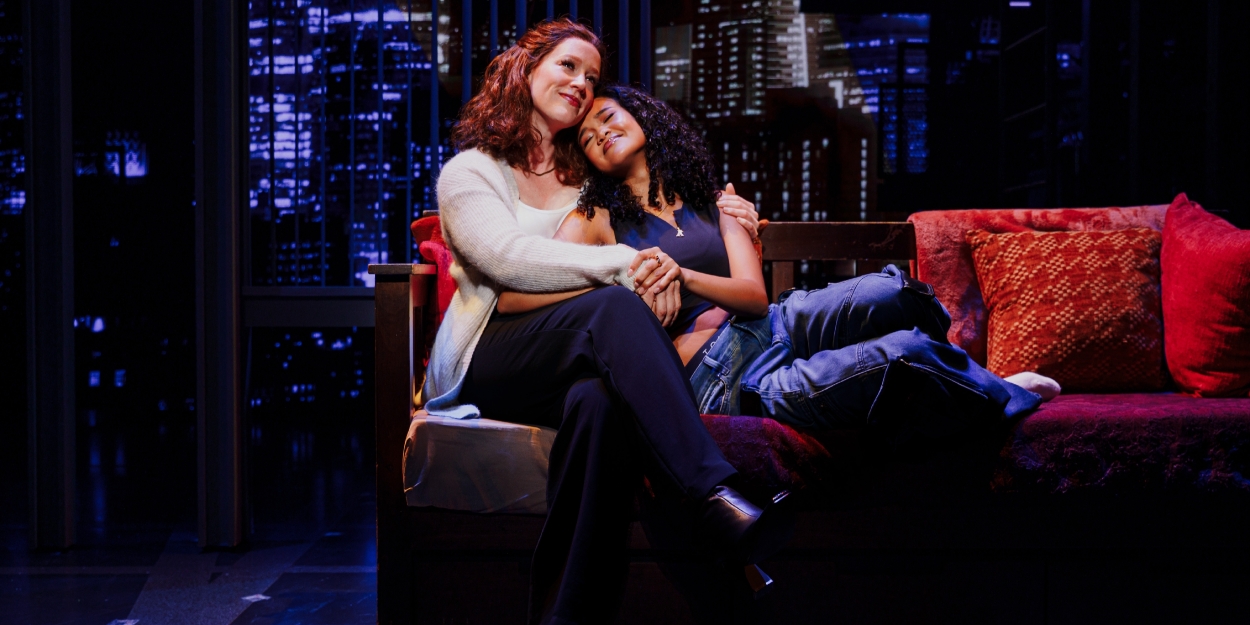



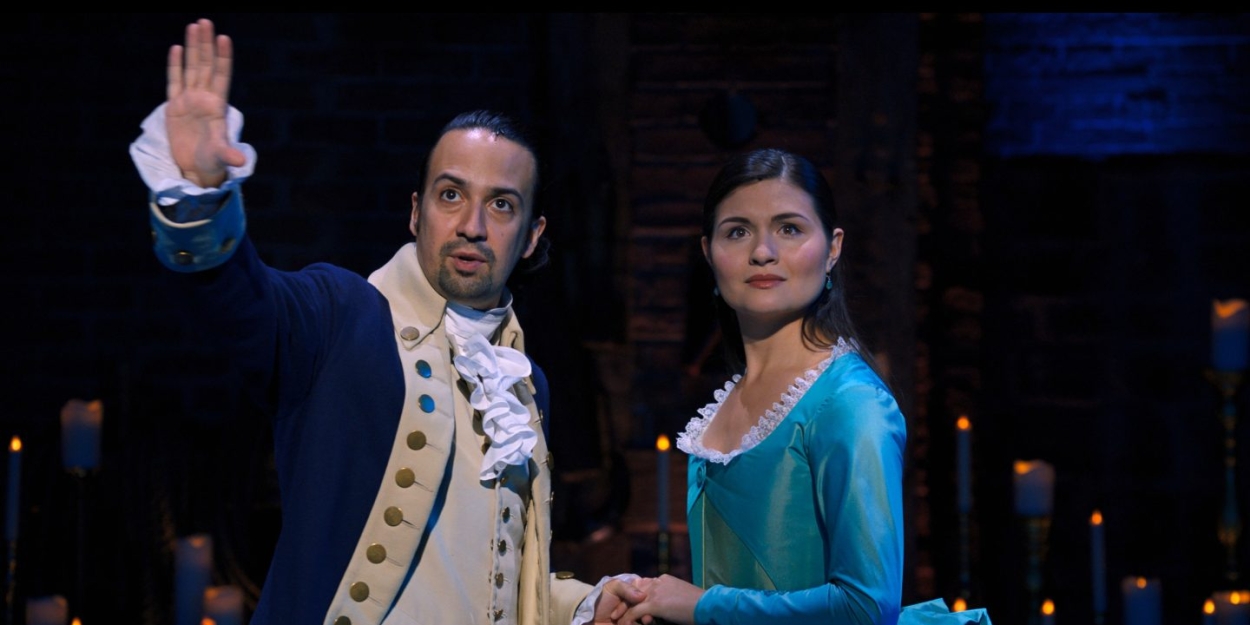

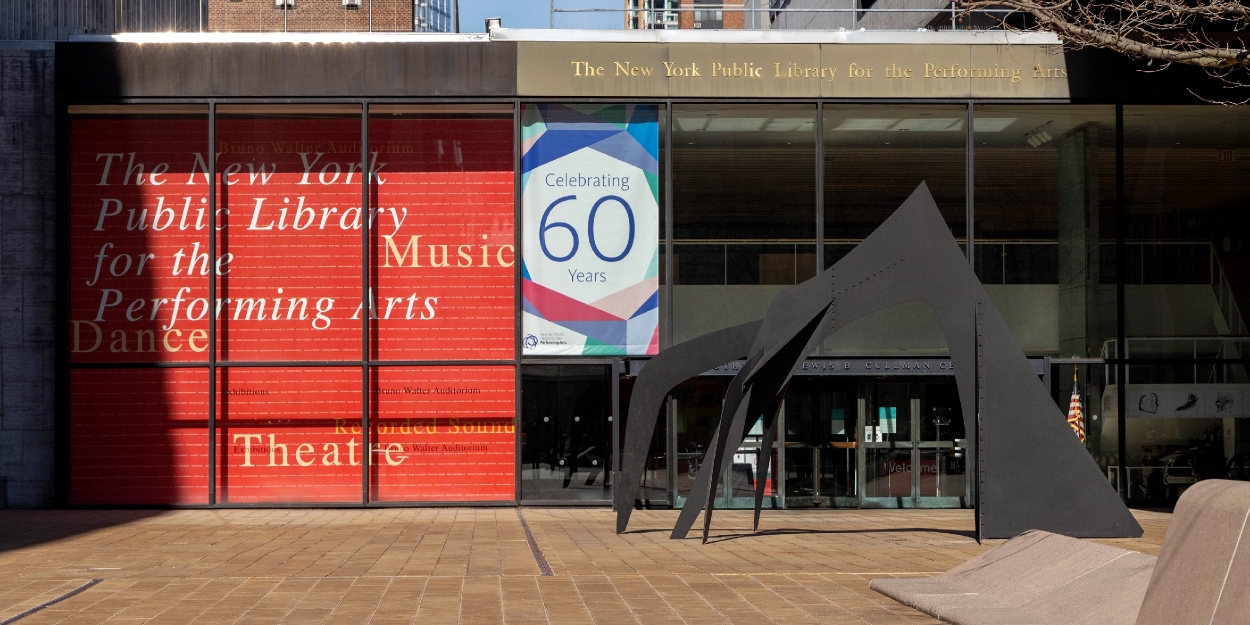


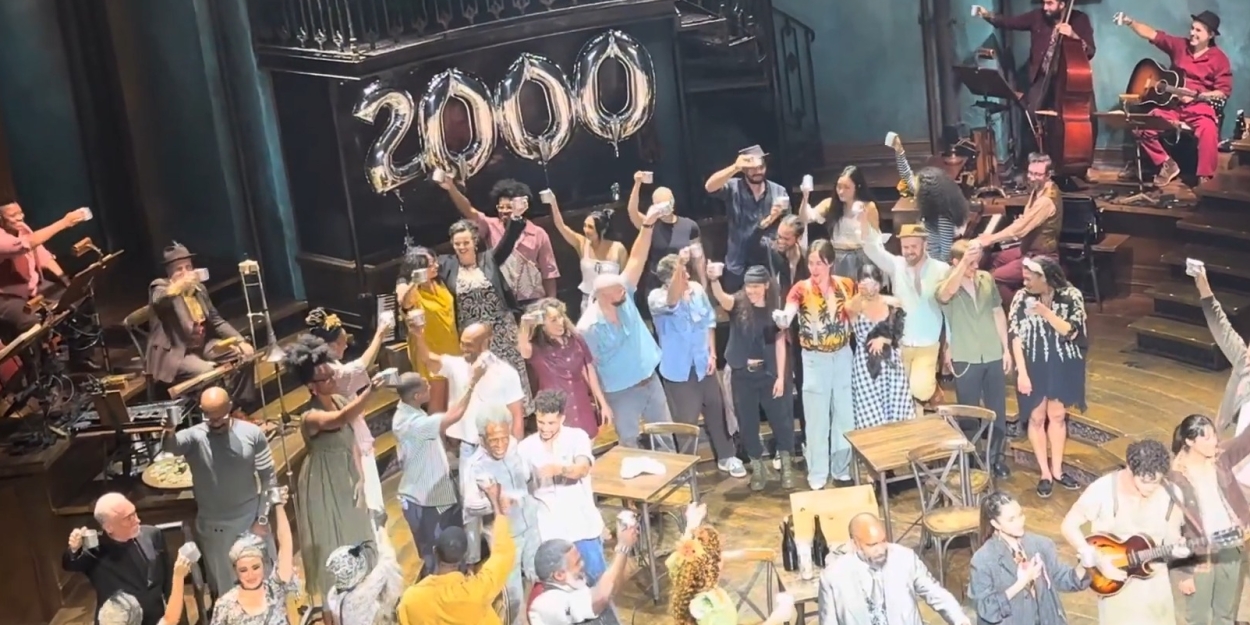











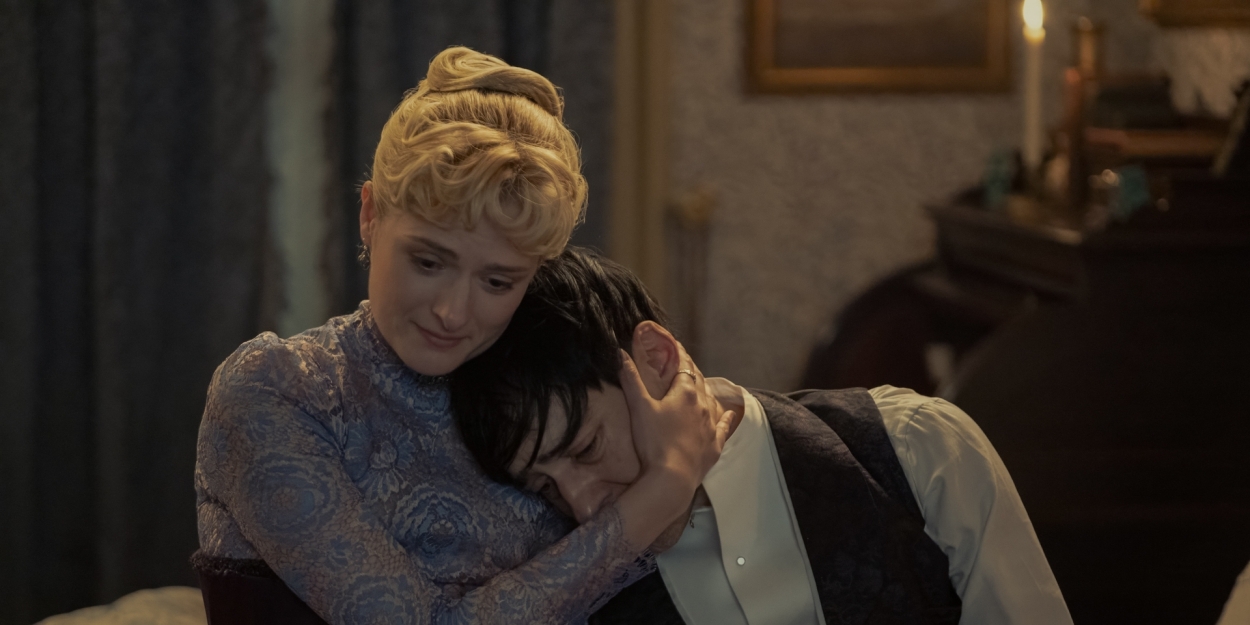





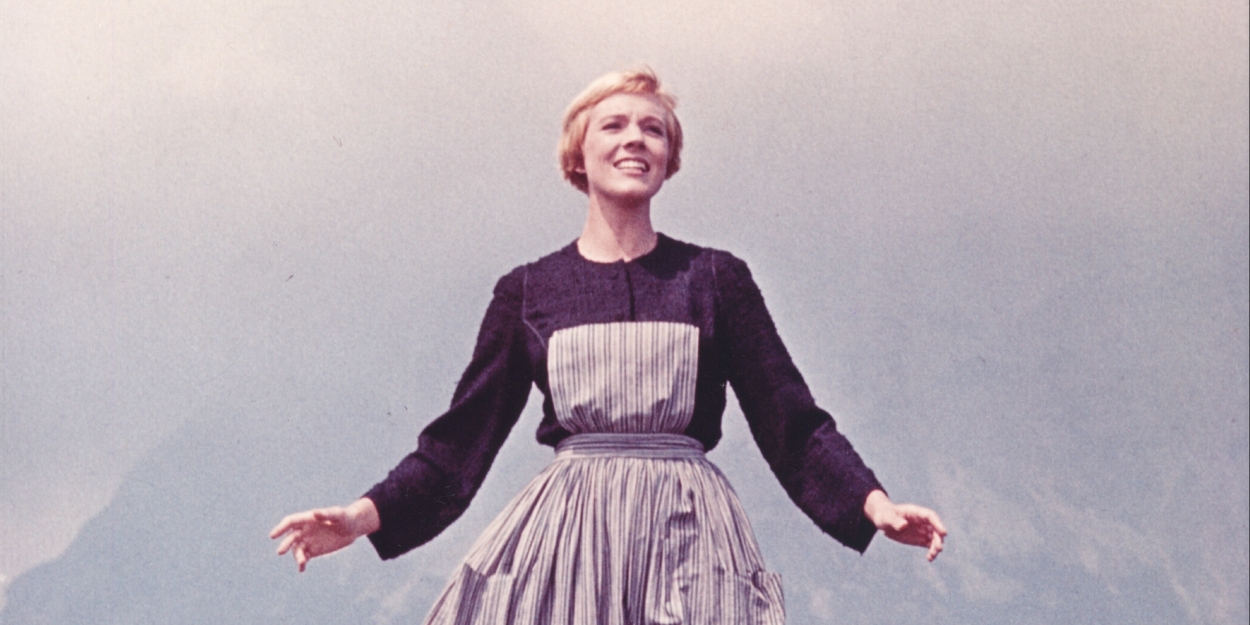



.jpg?format=auto&width=606)
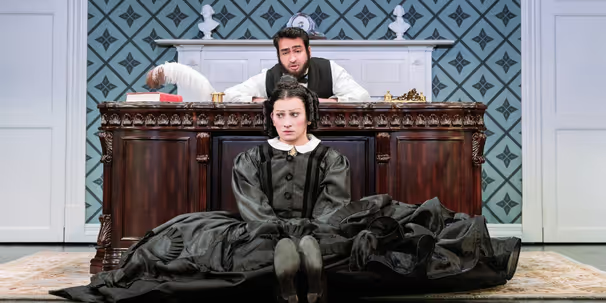
.jpg?format=auto&width=300)
















